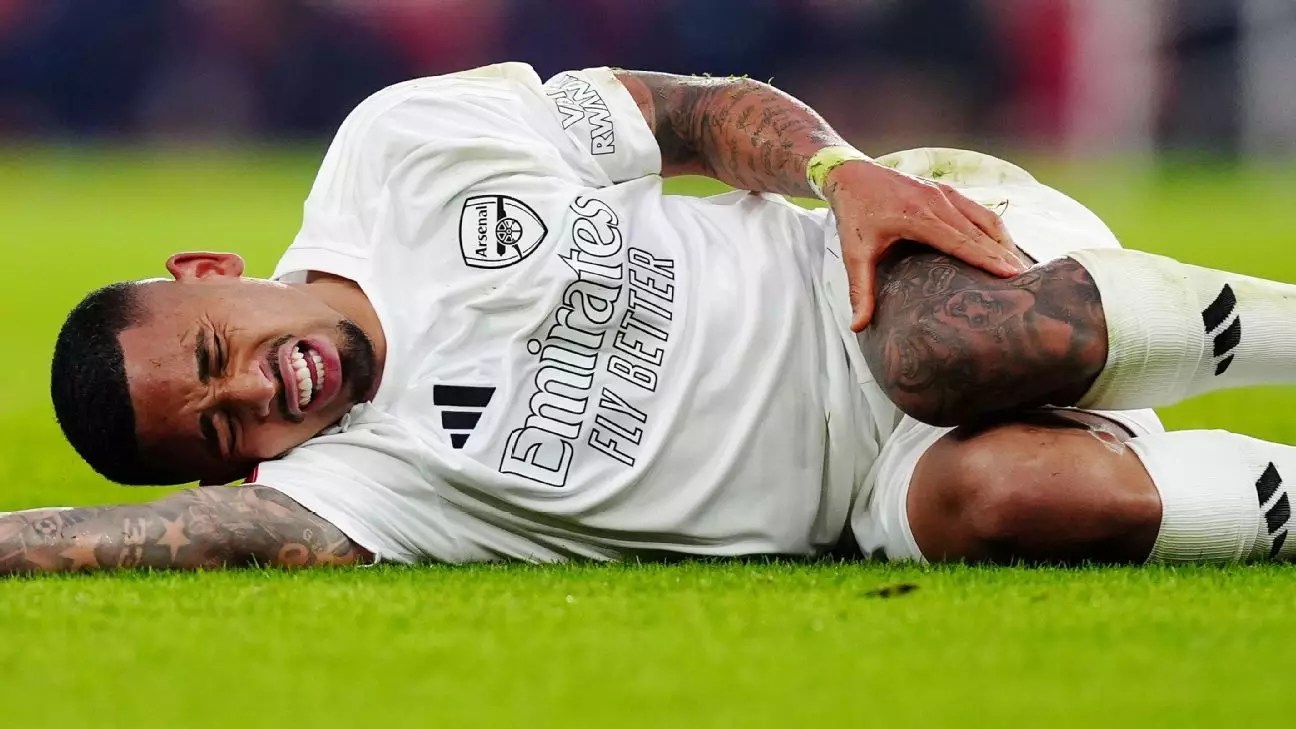The football world holds its breath as Arsenal manager Mikel Arteta confronts the grave situation surrounding Gabriel Jesus’s recent injury. Preliminary reports suggest a likely ACL rupture, sending a shockwave through the club and its fanbase. Arteta, caught between hope and despair, conveyed the seriousness of the injury, stating, “It is not looking good at all,” and underscoring the urgency of a more thorough medical assessment. The timing is particularly cruel, as Arsenal contemplates competing for the Premier League title, and losing a star forward like Jesus could derail their ambitions.
Jesus sustained the injury during an otherwise unremarkable play against Manchester United. As he clashed with United’s captain, Bruno Fernandes, the result was painfully significant—a departure from the match in the 40th minute, leaving fans to grapple with the implications. This incident reinforces the unpredictability of football, where seemingly innocuous events can lead to monumental consequences. Additionally, this injury strikes the opposite knee from an ACL issue he faced in 2022, raising concerns not only about his current fitness but also regarding his long-term career trajectory.
Arteta’s challenge is further compounded by the fact that injury woes are not exclusive to Jesus. Key players including Bukayo Saka, Takehiro Tomiyasu, and Ben White are also sidelined, forcing the manager to reconsider his tactical options. Despite a strong start to the season, the depletion of Arsenal’s resources can only lead to a destabilized squad. Arteta was asked if his club was under pressure to find a replacement for Jesus; he articulated a position that combines realism with optimism, indicating that the search for new talent remains a priority.
The approach to the transfer market is never straightforward. In Arteta’s words, successful recruitment necessitates the agreement of multiple parties, transforming a seemingly simple endeavor into a complex negotiation. Arteta’s commitment to enhancing the squad’s quality, despite the affection for his current players, is commendable. Yet, the reality persists that transformative signings or effective emergency measures might not be feasible within the narrow time frame left in the transfer window.
As Arsenal navigates this turbulent period, the importance of resilience within the squad should not be underestimated. Injuries are an intrinsic aspect of sports, but the ability of a team to adapt can often define its season. With Arteta promising continuous evaluation, the focus will be on fostering an environment where emerging talent can step up. The immediate challenge is to balance short-term needs with plans for a long-term future, an aspect that will test not only administrative agility but also the remaining squad’s mettle.
Arsenal stands at a crossroads following Gabriel Jesus’s injury. The next few weeks will be pivotal—decisions made now could dictate whether the team remains a title contender or struggles to maintain its competitive edge. How Arteta and his staff respond will be key in determining whether this season can still end on a high note.


Leave a Reply